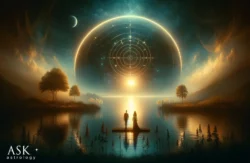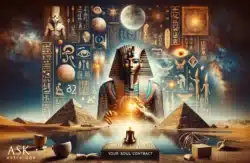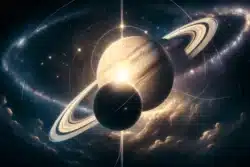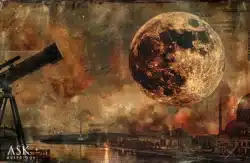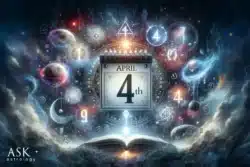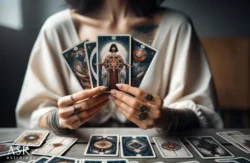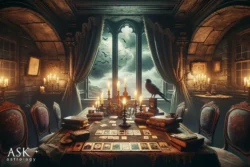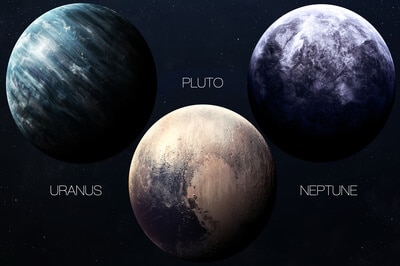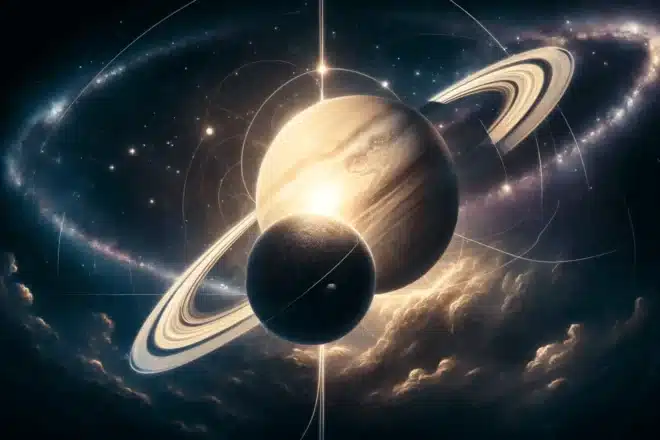Pluto, Uranus and Neptune are known as the transpersonal planets in Astrology because they move so slowly through the wheel of the zodiac that their movements affect entire generations of people.
While the personal planets of Mars, Venus, Mercury, the Sun and Moon indicate qualities of the unique individual ego, Pluto, Neptune and Uranus are reflections of transpersonal factors within the collective psyche, representing unconscious urges which have nothing to do with personality drives.
Indeed, these primordial urges are often entirely inimical to the interests of the ego.
Next after this publicity
We might think of these energies as the “bigger patterns” of the cosmos— the streams of energy which compose the matrix from which the ego and the personality and its illusion of separateness springs.
The urges which the three known outer planets symbolize are rarely available to the consciousness of the individual. As such, when the transpersonal planets make aspects to the birth chart, or when the natal transpersonal planets are powerfully aspected, the unconscious factor represented by the transpersonal planet is projected and, as Carl Jung wrote, presents itself outwardly as “fate”.
Aspects of Neptune, Pluto and Uranus are generally highly conspicuous. We find ourselves confronted with life-changing, revolutionary events which leave us forever changed. These are frequently highly difficult periods during which we must contend with a force of which we are entirely unconscious. We are taken way outside of our comfort zone into a primordial landscape where we must battle against a dragon— either a dragon of the sky (Uranus), dragon of the sea (Neptune), or a dragon of the underworld (Pluto).
Uranus
Uranus is a symbol of the “Divine Mind”, the realm of higher consciousness and the world of archetypal ideas. Uranus represents the blueprint of the Universe itself, the design of the underlying patterns which support the fabric of everything.
Uranus is highly turbulent and disruptive force when it touches the ego by aspect, for the primary interest of the ego is safety, security, clear distinctions and order. The Mind of God shatters apart all these illusions and usually turns our lives upside down. This is a projection of an unconscious need we have which we do not readily own— namely the need to break free of identification with material reality so that the mind can develop beyond the realm of concrete thought, facts and empirical knowledge. Uranus represents the deep urge for change and freedom in pursuit of a direct experience of the archetypal mind.
Next after this publicity
Uranus is often called “the Awakener” because the unconscious urge is projected and appears “out there”, coming back to the individual in the form of an event that tears down all the structures with which he has previously identified and stabilized himself.
This can be highly painful, yet the same time it can provide liberation from identification with the “stories” we tell about ourselves which are dramatically limiting the expression of our potential. Uranus breaks our identification with a particular experience or aspect of an experience; it rips away the titles, descriptions and materials with which we have been holding our eternal spirit hostage. We would never have freely chosen to have our conceptions about life blasted apart, yet there is something deeply unconscious within us that desires this more than anything.
If we rise to the challenge of these aspects, we can emerge from these periods of upheaval with expanded understanding of ourselves, our work, our beliefs, our relationships and our life’s purpose.
Neptune
Neptune represents the archetype of chaos, the counterpart to order. Neptune is dark, still void, into which the Creator called, “Let there be light!” It is the primordial night out of which manifest reality or consciousness emerged.
Neptune represents the unconscious urge to be swallowed within the mass being-ness of all. It is the impulse to dissolution. One witnesses the power of this urge in any large crowd, whether it is the pulsing sea of happily swaying people congregating at a music or sporting event, or the seething rampage of a riotous mob. In either case, there are no longer any individuals but instead a single organism motivated by one dominant emotion which must release itself. Whether through escapist destruction or exalted upliftment, within us there is an urge to seek salvation through the disintegration of the personal identity and individual consciousness in the mass of all.
Neptune is in some way the unconscious itself. It is that impulse toward the total undermining of the ego, the disintegration of identity. This impulse, like that of Uranus, is hardly ever consciously owned by an individual, and so is projected outward, returning as events which deeply disorient, confuse and bewilder. During Neptune aspects we often feel lost or unfocused; we become unsure of the world around us and who we are within it. Neptune plunges us into deep, dark waters where we have no footing and no sense of direction.
Next after this publicity
Neptunian events are generally those that entangle the individual in a situation to whose implications he is in some way blind. In consequence he finds himself powerless at a certain point to do anything except sacrifice some long-cherished desire. The experience of purification which is also characteristic of Neptune aspects usually comes through a prolonged experience of sacrifice, pain and powerlessness, for we emerge from these experiences humbled and heartbroken with more compassion for all humanity. We have been touched by feelings so deep and powerful that we cannot ever again honestly say to ourselves that our emotions are wholly under our own control.
Pluto
Everything— every experience, attitude, relationship, feeling, idea, object and creature— has a beginning, middle, end and a new beginning in some other form. Pluto is that churning wheel of fire which propels this cycle. It is the force of change itself, and within the individual it is the urge for self-transformation.
Most of us fear Pluto more than the other transpersonal planets, for we want certain moments to last forever and certain moments never to come. Furthermore, we know that the Lord of the Underworld does not bring change through gentle, gradual means; Pluto’s changes involve the passage into the darkness, the descent into a long, dark night of the soul.
When the Plutonian urge is projected, it comes back to us in the form of circumstances which force—often violently— the release of the outworn and outdated. Pluto takes away from us what we no longer need whether we like it or not, and what we will not let go of willingly will be burned down.
These experiences can leave us with a feeling of irretrievable loss. There is always rebirth after death, yet we cannot minimize the sorrow that accompanies destruction, death and endings. It takes great bravery and strength to look among the ashes, but if we do we will find the birth of a new perspective and a new life, and this new form is always greater than the old. Any death is only the end of one cycle; it is also the beginning of another.






















